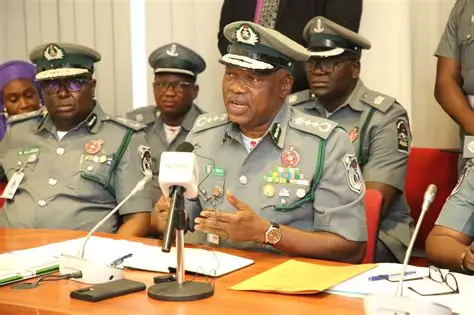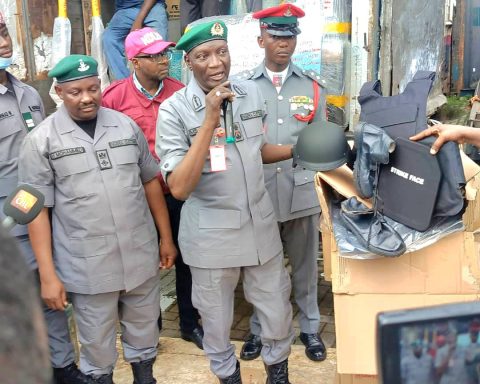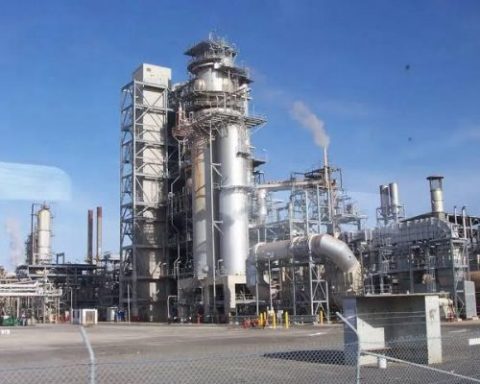The recent proposal by the Nigeria Customs Service (NCS) for a significant increase in licensing fees for customs agents, freight forwarders, and related stakeholders has sparked concerns within the import-export sector, especially regarding the impact on the economy.
The proposed adjustment represents an unprecedented 20-fold jump in costs—from the current N515,000 to a staggering N10 million for new licenses – marking the first comprehensive fee review since 2002.
Join our WhatsApp ChannelAccording to the proposal, renewal fees will increase from N215,000 to N4 million. Importers and exporters will also be mandated to obtain bank bonds of up to N20 million (a 5,614 per cent increase), from the current N350,000, as a financial guarantee.
Licensing fee for bonded terminal operators will jump from N60,000 to N20 million, while renewals will cost N10 million from the current N60,000, according to the new review.
Terminals will now obtain N500 million of bank bonds, which is a 900 per cent increase from the current requirement of N50 million.
Ship chandlers will be paying a new fee of N2 million against the current N515,000 for licences, an almost 290 per cent hike.
Defending the new charges, NCS said the decision was taken in view of prevailing economic realities, including the value of exchange rates, and the need to address operational demands. The NCS also said the action is backed by provisions of Sections 103 and 107 of the Nigerian Customs Service Act 2023, which stipulate that individuals transacting business with the Service “shall have fulfilled all the licensing requirements imposed by this Act or regulations made under this Act.”
This legal grounding provides the statutory basis for the adjustments, though questions remain about the consultation process required by the same legislation.
This sudden policy shift comes alongside the introduction of a new 4 per cent free on board (FoB) charge on imports, replacing the previous 1 per cent Comprehensive Import Supervision Scheme (CISS), further compounding operational costs for trade stakeholders.
Concerns about the potential impact of these changes has raised the alarm in the Nigeria’s logistics and trade ecosystem, with many fearing substantial ripple effects across the entire economy.
As the country assumes chairmanship of the World Customs Organisation (WCO) Council, the NCS appears to be pursuing an aggressive modernization agenda, positioning these fee increases as necessary for funding technological upgrades and improving regulatory integrity.
However, the implementation approach and magnitude of increase have drawn sharp criticism from industry stakeholders who question both the methodology and potential consequences of such drastic measures.
Various groups in the goods clearing sector have kicked against the new proposal. At a meeting in Lagos on Thursday, 21 August, groups, including the Association of Nigerian Licensed Customs Agents (ANLCA), Africa Association of Professional Freight Forwarders and Logistics (APFFLON), National Council of Managing Directors of Licensed Customs Agents (NCMDLCA), Association of Registered Freight Forwarders of Nigeria (AREFFN) Save Nigeria Importers, Exporters and Freight Forwarders Coalition (SNIEFFC) as well as the Lagos Chamber of Commerce and Industry (LCCI), unanimously rejected the proposal.
They set a committee to harmonise their positions and come up with a proposal to be presented to the Comptroller General of Customs, Bashir Adewale Adeniyi, at a later meeting.
ANLCA National President, Emenike Nwokeoji, warned that the new fee hike, if implemented, would affect consumers who would receive the knock-on effect in the form of higher prices for goods, further deepening economic challenges for Nigerians.
READ ALSO:
- Tinubu Extends Tenure Of Customs Comptroller-General
- Customs Issues 21-Day Ultimatum To TAP Defaulters Over ₦379.5bn Bond Breach
- Nigeria Customs Vows To Intensify Action Against Smugglers After Seizing ₦1.28bn Illegal Items
Nwokeoji, who appeared on Channels Television Morning Brief on Monday, decried the magnitude of the increase.
He dismissed claims that agents make billions of naira from clearing goods.
Chairman, House Committee on Customs, Leke Abejide, who said the review of the customs licensing fee was necessary given the economic realities, claimed that agents can do jobs worth billions of naira, adding that the new charges are insignificant.
Abejide said operating a bonded terminal requires huge capital investment for the equipment needed and wondered why the agents have issues with the proposed bank bonds requirement and licensing fee.
However, Nwokeoji said it is the lawmaker’s personal view and not the true state of things in the industry.
The ANLCA emphasized the need for authorities to involve stakeholders in proposals that affect them, noting that they also play major roles in the economy.
“I will advise that when making some of these proposals, they should carry us along. We play a major role in the economy,” Nwokeoji stated.
He warned that “Everything should not be about revenue,” urging the authorities to consider the plight of the common man affected by higher prices.
“What that 4 percent means is that every cargo coming into the country must pay 4 percent,” Nwokeji stated while commenting on the FoB charge.
An importer, Emenike Eke, shared a similar sentiment about the implications of the new charges on the cost of goods and the impact on consumers.
“This increase will bring more hardship to Nigerians, because the importer who cleared his/her goods with a high rate will be affected by the increase in his/her products in the market,” he stated.










